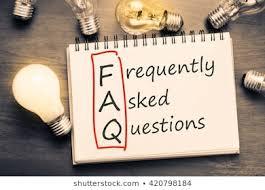9 Secrets to an Internship Cover Letter That'll Get You Noticed
Feb 03,2021
Is it time to start applying for internships? This is a stressful process, and you want to write the perfect internship cover letter so you can land that coveted interview.
Do you know how to write a cover letter for an internship that will get you accepted in no time?
There are no sure things in internship applications, but we have a few tips and tricks from successful interns and hiring managers for how you can write the best possible letter. Keep reading to learn more.
1. Don't Use a Stock Cover Letter
One of the biggest mistakes that prospective interns make is using a stock cover letter for all of their applications.
It might sound like a good idea at first. If you're applying to a lot of internships, why not cut down on time and add a few personal details here and there to spruce it up and tailor it to each opportunity?
Hiring managers know this trick.
If you're really interested in an internship opportunity, you should know the business in and out. What is this business looking for in an intern? Who will be reading the letter? What does the business have to offer you and what do you need to offer them?
Offer the business as much respect as you'd like in return. After all, would you appreciate a stock rejection notice, or something more personal?
Bonus: You won't make the embarrassing mistake of leaving information about another company in your letter if you're always re-writing.
2. Format It Like a Business Letter
This is true for most businesses, though there are exceptions. Again, refer to #1: Write to your audience.
You're applying to this internship as a professional in your field, right? Format your letter as such.
While this isn't always essential in online applications that store all of your information in one place, it looks very professional to keep all of your contact information in the top left of your letter or under the signature at the bottom (for email letters).
Make sure that you use a professional salutation and that you reference the person who you're speaking to if you know their name.
There are formatting guidelines for business letters that make this advice simple to follow.
3. Use Keywords From the Internship Posting
The internship postings use specific keywords. It's how they come up when you search for them, but it's also how hiring managers find the right candidates.
These keywords likely include things like "leadership," "working with diverse communities," "teaching English as a second language," and other things that relate to your specific field.
While you might think that it's enough to reword these things and include them that way, consider using them word for word.
Many businesses use software to sort through resumes and cover letters. Using those specific phrases helps you stay above the rest of the applicants. Hiring managers are also looking for those specific skills, and if they're spending a lot of time sifting through cover letters, you'll stick out by using the keywords.
4. Explain Why You Qualify
Once you include the keywords, make sure that you explain how you qualify under each one. What experience do you have in the areas that they're looking for?
This isn't a time to undersell yourself. As you may know with resume building, you can break down jobs or classes into smaller parts to show where these skills are coming from.
For example, even if you've never had a "real teaching role," you can talk about how your experience as a children's photographer had you working with diverse communities of children and learning to give instructions to them.
5. Explain Why You Want This Specific Position
All businesses know that you want the internship for work experience, money, and a chance at a future full-time position. It's your job to explain why you picked this internship to apply to over all of the others (even if you've also applied to the others).
This is where you compliment the business. What are some interesting things that they've done, or contributions that they've made to the field? How is their work culture interesting to you, and why would they be a great addition to your resume?
Don't be afraid to "suck up" here.
6. Emphasize Skills and Academics
You've worked hard during your degree program, right? It's time to take advantage of this space to talk up all of the skills and education that you've gotten along the way.
Again, you need to oversell yourself. Go into the letter with the mindset that you're the best fit for the position. You're on the track to graduate at the top of your class. You've consistently made the honor roll or president's list. You're a high achiever and you deserve to be considered for the internship position.
Make sure that you tailor these skills and academics towards the internship rather than listing all of them. Don't mention the areas in which you've faltered.
7. Don't Forget Extracurriculars
Your extracurricular activities and programs are just as important as your academic ones.
These are great to show extra excellence. If you were part of honor society, if you led any sports teams or clubs, or if you've done extensive volunteer and charity work, these things look great to a potential employer.
They show leadership, drive, and ambition. They also show that you aren't only about your academics and that you're able to multitask. This may be the one thing that puts you above all of the other applicants.
8. Proofread Before Sending
Never send a professional letter without proofreading it first.
Your hiring manager will likely look over a few errors, but they look unprofessional and like the letter was thrown together last minute.
It's not hard to do a quick scan of your letter to make sure that you haven't made any foolish mistakes. When in doubt, take your letter to a university writing center or have a friend or classmate read over it for you.
9. Follow Up
After your cover letter is sent, make sure that you keep track of how long it's been. Once a week or so has passed, it's a good idea to follow up with the hiring manager with another email or letter.
Some people are afraid to do this because they don't want to look desperate. In reality, though, it shows that you're driven. If the business thinks that you look desperate because you send a second letter, they aren't the internship for you.
Are You Ready to Write Your Internship Cover Letter?
Writing an internship cover letter is stressful, but you can do it. Make sure you know everything about the company and position and how all of your skills can apply to it and get writing.
Remember, the company is looking for someone like you.
Do you want access to scholarships, discounts, a great community, and more insider information about achieving your career goals? We have the community for you. Sign up for Honor Society today and start your path to your dreams.






